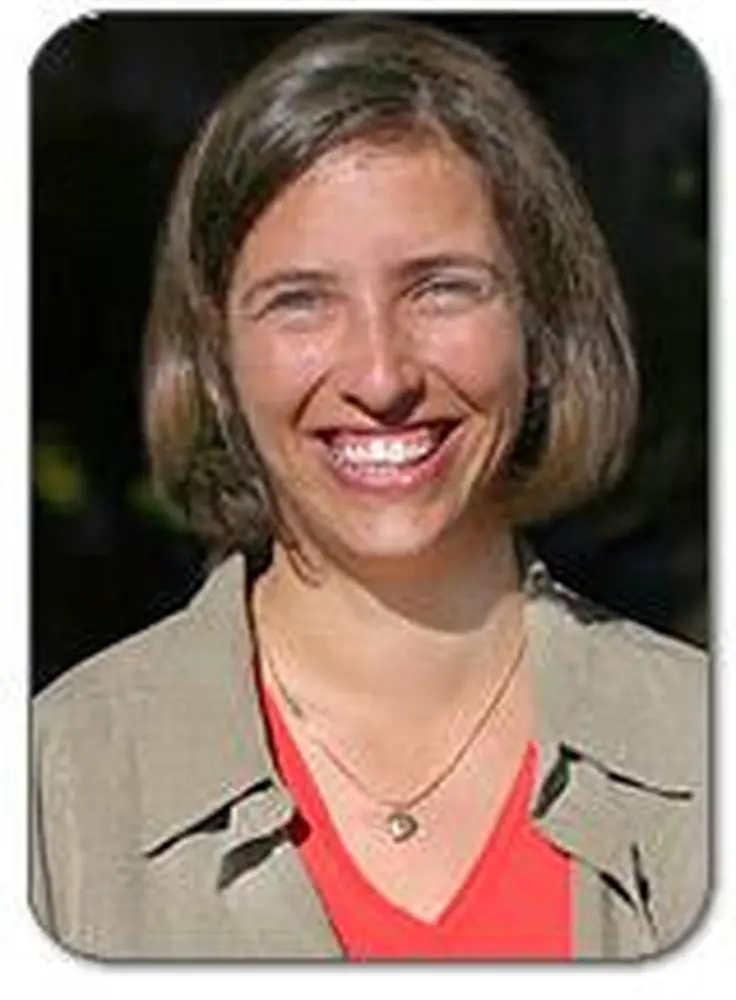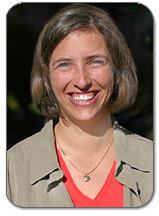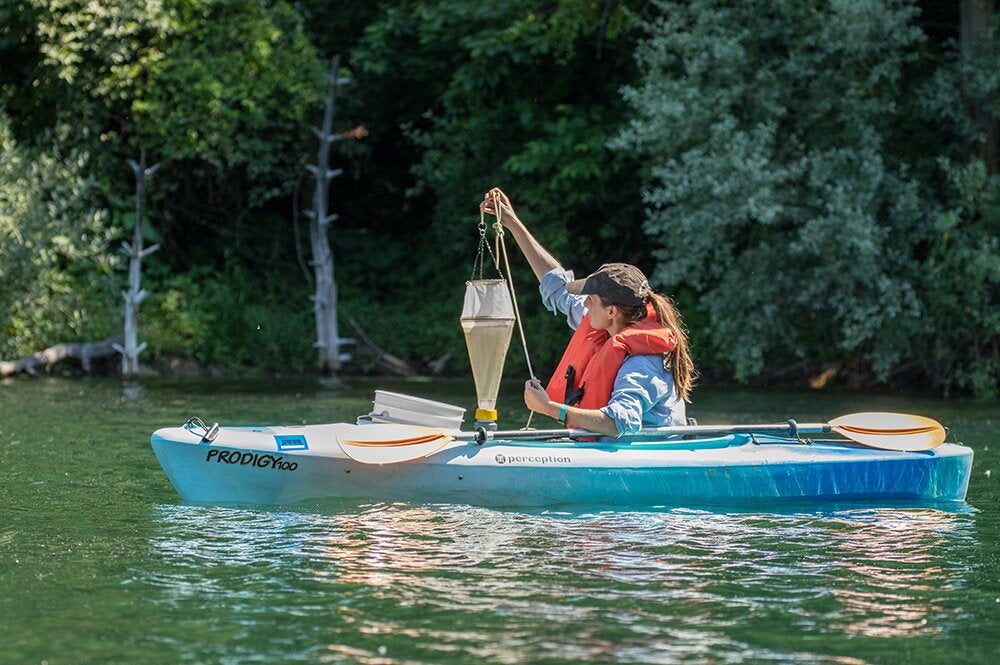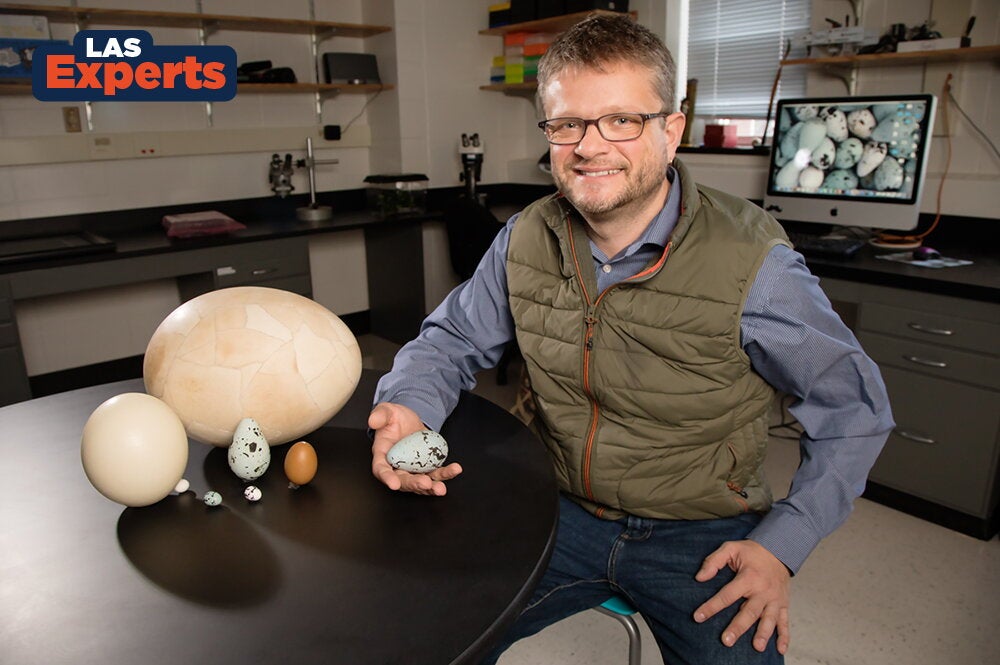

Carla E. Cáceres, a professor of animal biology at the University of Illinois at Urbana-Champaign, is among 57 young researchers named this fall as recipients of the 2003 Presidential Early Career Awards for Scientists and Engineers, the highest honor bestowed by the government on young professionals at the outset of their independent research careers.
Cáceres received her award on September 9 in a White House ceremony . She was among 12 women of the 20 honored researchers whose work is supported by the National Science Foundation. Eight federal departments and agencies sponsor the research of the winners.
Cáceres explores the interface of population, community, and evolutionary ecology. She currently is studying the dormant eggs of zooplankton that accumulate and remain for centuries in the sediments of the dozens of lakes formed in the past century by strip mining in Vermilion County in Illinois.
When the eggs are removed from the lake and hatched, they provide living links to the past, allowing her to address how different factors influence persistence ability of populations and the development of aquatic communities. As part of her research, Cáceres will produce a study manual for elementary schoolteachers to use on field trips to lakes within a state park.
Cáceres received a bachelor's degree in biology in 1991 from the University of Michigan and a doctorate in ecology and evolutionary biology in 1997 from Cornell University. She joined the Illinois faculty in 1997 while serving as a scientist with the Illinois Natural History Survey.


